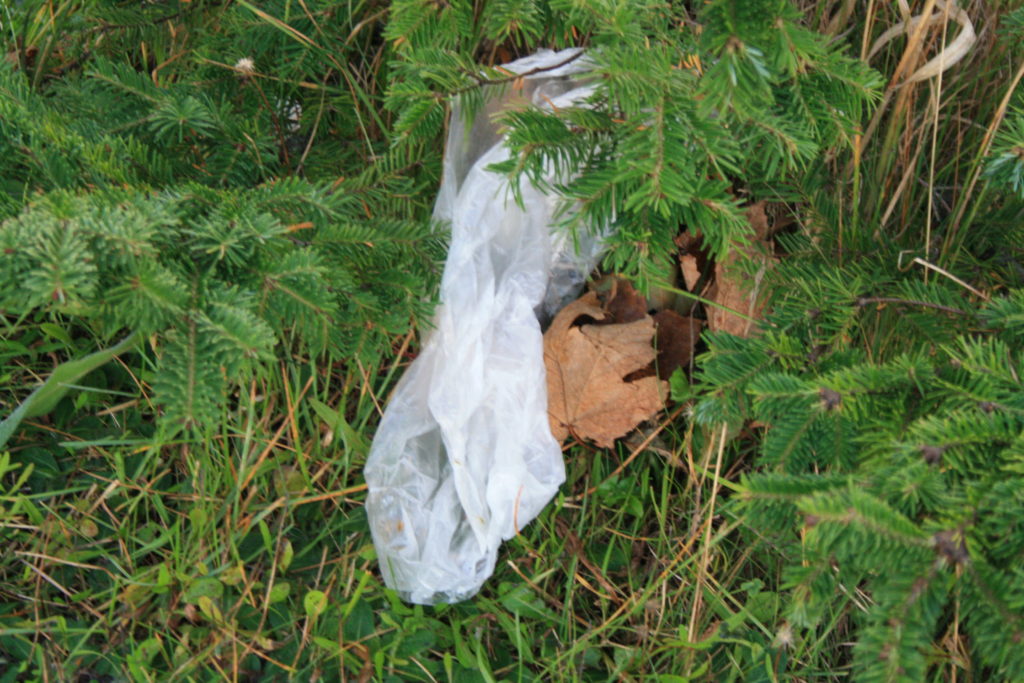Two years after a resolution on the ban of single-use plastic bags forwarded to Municipalities Newfoundland and Labrador, people are still lobbying for change.
Jessie Dobbin
Kicker
Single-use plastic bags, like everything else, has its pros and cons. While helpful for carrying groceries and used as trash bags, plastic bags often end up in environment and don’t biodegrade.
As spring cleanups began, there were coffee cups, bits of trash and plastic bags in ditches and stuck in trees. Robin Hood Bay has been called the plastic bag forest. The wind has blown hundreds of plastic bags into the trees that surround the dump.
On Aug. 25, 2015, Joe Butler, councillor for Portugal Cove-St. Philip’s, put forward a resolution to ban single-use plastic bags. It was forwarded to Municipalities Newfoundland and Labrador, a blanket association for municipalities across the province. According to council minutes for the meeting, the resolution was carried unanimously.
Sheilagh O’Leary is St. John’s deputy mayor. She has long been an advocate for the ban.
“I’ve always been involved in environmental advocacy and when this came forward and I was able to speak as a council member in St. John’s, I certainly came on board to support it,” said O’Leary.
It’s now two years later and there is no word on a timeline for the provincial-wide single-use plastic bag ban.
Provincial Environment Minister, Eddie Joyce, said in an interview with The Telegram the province is looking into the issue, but there is no timeline.
“But I can tell you we are working on it, gathering information as we speak,” said Joyce.
Plastic bags, said O’Leary, break down into smaller bits of plastic long before they actually decompose.
“When people think they biodegrade, they do not,” said O’Leary. “They break down into smaller microplastics. So, it just ends up getting smaller, smaller and smaller which ends up getting into the soil, into the water, into marine life and animal life and we ingest it. We are now becoming composed of plastic bits.”

Grocery stores are major users of plastic bags.
Judy Bennett, who is the media relations and event planner for Colemans, says they are trying to reduce the use of the plastic bags.
“We would love to reduce the amount of plastic in our environment and we’re standing by that by offering this five-cent program to people who shop with Colemans,” said Bennett in a phone interview.
Colemans’ rewards shoppers who bring in their own reusable cloth bags. For every cloth bag shoppers use at the checkout, they get five cents off their grocery bill.
According to O’Leary, single-use plastic bags are “absolutely non-essential” and cities like Victoria and Montreal will be banning them next year. Nain and Fogo Island have already banned single-use plastic bags.
The reason the city of St. John’s hasn’t put a ban on single-use plastic bags, said O’Leary, is simply because the city council doesn’t have the legislative capability to do so.
“An outright ban, I think, for a marine coastal environment like we have in the province of Newfoundland and Labrador is defiantly the solution.”




Be the first to comment